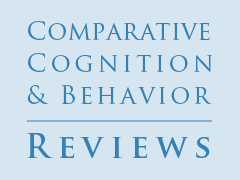A History of Dogs as Subjects in North American Experimental Psychological Research
by Erica N. Feuerbacher,
University of Florida
C. D. L. Wynne,
University of Florida and Kyung Hee University
Reading Options:
Download/Read PDF | Add to Endnote
Abstract
The recent resurgence in psychological experiments involving dogs revives a long and rich tradition of using dogs as experimental subjects in psychology. Aside from a few very well known authors (e.g., Pavlov, and Scott and Fuller), this research is often overlooked. Here we trace the history of dogs as experimental subjects. A review of Darwin and Pavlov’s research sets the stage for our focus on research conducted in North American laboratories. We end our review with the advent of the modern renaissance of dog research. Our account of dog research illuminates the history of psychology as a science, providing insight into psychological processes and sheds light on the behavior of dogs specifically. A rediscovery of this literature can only improve future research: rejuvenating old questions, suggesting new problems, and highlighting useful methods for work on current issues
Keywords: history of psychology, dogs, Pavlovian conditioning, operant conditioning, animal cognition
Feuerbacher, E. N., & Wynne, C. D. L. (2011). A History of Dogs as Subjects in North American Experimental Psychological Research. Comparative Cognition & Behavior Reviews, 6, 46-71. Retrieved from https://comparative-cognition-and-behavior-reviews.org/ doi:10.3819/ccbr.2011.60001
